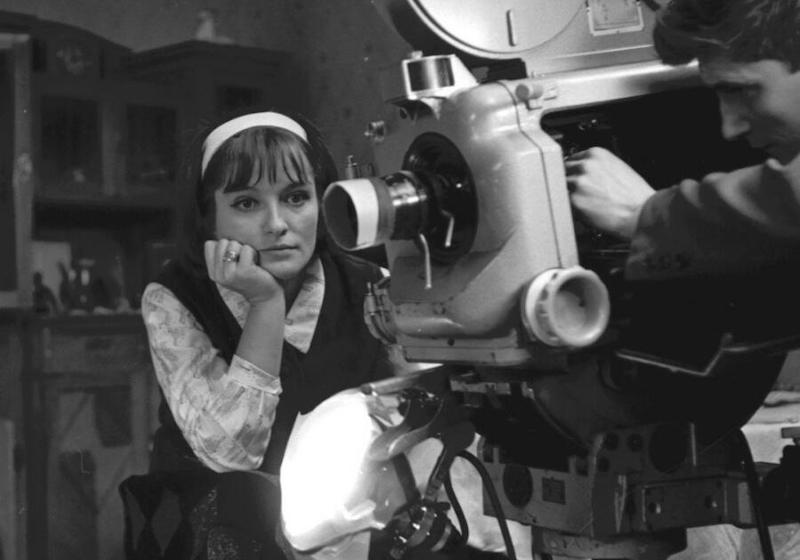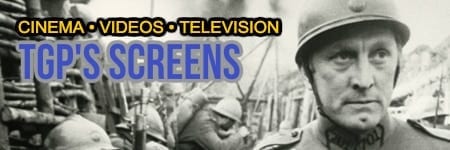Classic Cinema: The Ascent
See this film and think about how degenerate American films and reality have become. Look around and observe this huge culture bathed from top to bottom in despicable lies—everything an imposture, 24/7, a cynical falsehood that few really detect and still fewer rebel against.
LARISA SHEPITKO
The Ascent
 The crowning triumph of a career cut tragically short, the final film from Larisa Shepitko won the Golden Bear at the 1977 Berlin Film Festival and went on to be hailed as one of the finest works of late Soviet cinema. In the darkest days of World War II, two partisans set out for supplies to sustain their beleaguered outfit, braving the blizzard-swept landscape of Nazi-occupied Belorussia. When they fall into the hands of German forces and come face-to-face with death, each must choose between martyrdom and betrayal, in a spiritual ordeal that lifts the film’s earthy drama to the plane of religious allegory. With stark, visceral cinematography that pits blinding white snow against pitch-black despair, The Ascent finds poetry and transcendence in the harrowing trials of war. (From Criterion collection edition).
The crowning triumph of a career cut tragically short, the final film from Larisa Shepitko won the Golden Bear at the 1977 Berlin Film Festival and went on to be hailed as one of the finest works of late Soviet cinema. In the darkest days of World War II, two partisans set out for supplies to sustain their beleaguered outfit, braving the blizzard-swept landscape of Nazi-occupied Belorussia. When they fall into the hands of German forces and come face-to-face with death, each must choose between martyrdom and betrayal, in a spiritual ordeal that lifts the film’s earthy drama to the plane of religious allegory. With stark, visceral cinematography that pits blinding white snow against pitch-black despair, The Ascent finds poetry and transcendence in the harrowing trials of war. (From Criterion collection edition).
More details about this haunting film.
- The Ascent (Voskhozhdenie, 1977) – her last completed film and the one which received the most attention in the West. The actors Boris Plotnikov and Vladimir Gostyukhin gained their first major roles in the film. Adapted from a novel by Vasili Bykov, Shepitko returns to the sufferings of World War II, chronicling the trials and tribulations of a group of pro-Soviet partisans in Belarus in the bleak winter of 1942. Two of the partisans, Sotnikov and Rybak, are captured by the Wehrmacht and then interrogated by a local collaborator, played by Anatoly Solonitsyn, before four of them are executed in public. This depiction of the martyrdom of the Soviets owes much to Christian iconography. The Ascent won the Golden Bear at the 27th Berlin International Film Festival in 1977.[11] It was also the official submission of the Soviet Union for the Best Foreign Language Film of the 50th Academy Awards in 1978, and it was included in "1001 Movies You Must See Before You Die" by Steven Schneider.
- Shepitko wanted to film to adhere to the authenticity of what Soviet soldiers would have experienced during World War II. The cast derived of no-named actors whose backgrounds fit similar to how she wanted their characters to portray. The film was shot in Murom during the severe winters of Russia where temperatures reached 40 degrees below zero. Shepitko refuse any special treatment and only wore clothing that the cast wore to embody the suffering that they went through.[12]
Ukrainian Soviet film director, screenwriter and actress. Larisa Shepitko is considered one of the best female directors of all time, and her film The Ascent was the second film directed by a woman to win a Golden Bear, and the second film directed by a woman to win a top award at a major European film festival (Cannes, Venice, Berlin). Larisa died instantly in a car crash in 1979, while scouting locations for her next film. Four members of her crew also perished in the accident.
The views expressed herein are solely those of the author and may or may not reflect those of The Greanville Post. However, we do think they are important enough to be transmitted to a wider audience.
